
Zhou Enlai was a Chinese statesman, diplomat, and revolutionary who served as the first Premier of the People's Republic of China from September 1954 until his death in January 1976. Zhou served under Chairman Mao Zedong and aided the Communist Party in rising to power, later helping consolidate its control, form its foreign policy, and develop the Chinese economy.

Zhu De was a Chinese general, military strategist, politician and revolutionary in the Chinese Communist Party (CCP).

East China Normal University (ECNU) is a public university in Shanghai, China. It is affiliated with the Ministry of Education and co-funded with the Shanghai Municipal People's Government. The university is part of Project 211, Project 985, and the Double First-Class Construction.
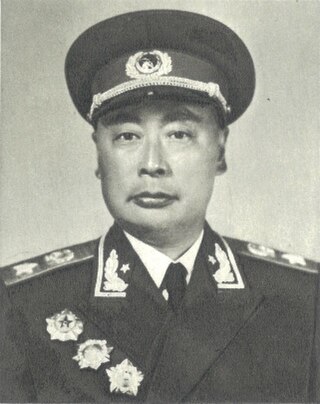
Chen Yi was a Chinese communist military commander and politician. He served as Mayor of Shanghai from 1949 to 1958 and as Foreign Minister of China from 1958 to 1972.

The Sino-Soviet split was the gradual deterioration of relations between the People's Republic of China (PRC) and the Union of Soviet Socialist Republics (USSR) during the Cold War. This was primarily caused by doctrinal divergences that arose from their different interpretations and practical applications of Marxism–Leninism, as influenced by their respective geopolitics during the Cold War of 1947–1991. In the late 1950s and early 1960s, Sino-Soviet debates about the interpretation of orthodox Marxism became specific disputes about the Soviet Union's policies of national de-Stalinization and international peaceful coexistence with the Western Bloc, which Chinese leader Mao Zedong decried as revisionism. Against that ideological background, China took a belligerent stance towards the Western world, and publicly rejected the Soviet Union's policy of peaceful coexistence between the Western Bloc and Eastern Bloc. In addition, Beijing resented the Soviet Union's growing ties with India due to factors such as the Sino-Indian border dispute, and Moscow feared that Mao was too nonchalant about the horrors of nuclear warfare.

Chen Boda, was a Chinese Communist journalist, professor and political theorist who rose to power as the chief interpreter of Maoism in the first 20 years of the People's Republic of China. Chen became a close associate of Mao Zedong in Yan'an, during the late 1930s, drafting speeches and theoretical essays and directing propaganda.

Zhenbao Island or Damansky Island is an island in Hulin, Jixi, Heilongjiang Province, China, with an area of only 0.74 square kilometres (0.29 sq mi). It is on the Ussuri River on the border between Primorsky Krai, Russia, and Heilongjiang Province, China.
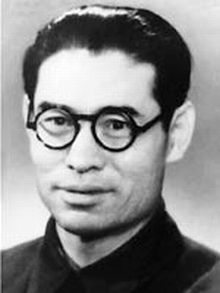
Gao Gang was a Chinese Communist Party (CCP) leader during the Chinese Civil War and the early years of the People's Republic of China (PRC) before he became the victim of the first major purge within the party since before 1949. The events surrounding Gao's purge, the so-called "Gao Gang Affair", are still the subject of debate: a limited amount of research has been done on the topic, partly because of the relatively small amount of information available.

The Sino-Soviet Treaty of Friendship, Alliance and Mutual Assistance, or Sino-Soviet Treaty of Friendship and Alliance for short, was a bilateral treaty of alliance, collective security, aid and cooperation concluded between the People's Republic of China and the Union of Soviet Socialist Republics on February 14, 1950. It superseded the previous Sino-Soviet treaty signed by the Kuomintang government.
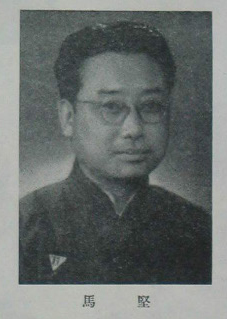
Muhammad Ma Jian was a Hui-Chinese Islamic scholar and translator, known for translating the Qur'an into Chinese and stressing compatibility between Marxism and Islam.
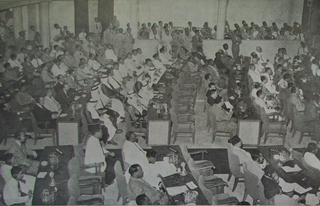
The first large-scale Asian–African or Afro–Asian Conference —also known as the Bandung Conference—was a meeting of Asian and African states, most of which were newly independent, which took place on 18–24 April 1955 in Bandung, West Java, Indonesia. The twenty-nine countries that participated represented a total population of 1.5 billion people, 54% of the world's population. The conference was organized by Indonesia, Burma (Myanmar), India, Ceylon, and Pakistan and was coordinated by Ruslan Abdulgani, secretary general of the Ministry of Foreign Affairs of the Republic of Indonesia.
Lucian W. Pye was an American political scientist, sinologist and comparative politics expert.
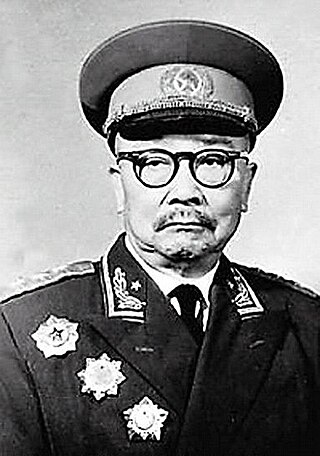
Li Kenong was a Chinese general and politician, one of the creators of the security and intelligence apparatus of both the Chinese Communist Party (CCP) and the People's Liberation Army. Notably, he served as Director of the Central Investigation Department, Deputy Chief of the PLA General Staff Department and Deputy Minister of Foreign Affairs and was awarded the rank of General in 1955.
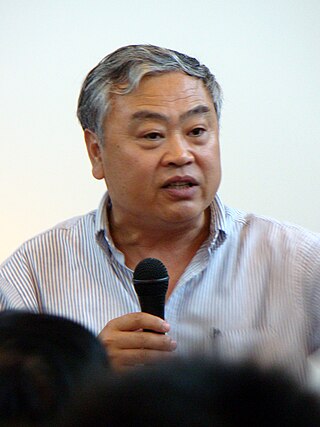
Shen Zhihua is a professor of history at East China Normal University and adjunct professor at Peking University and Renmin University of China. Shen is an expert in the history of the Soviet Union, Sino-Soviet relations, and the Cold War. He is director of the Center for Oriental History Studies of the Chinese Academy of Sciences and honorary researcher at the Chinese University of Hong Kong. In 2011 Shen was public policy scholar at the Woodrow Wilson International Center for Scholars in Washington, D.C.

Zhou Enlai: The Last Perfect Revolutionary is a book written by Gao Wenqian. Before moving to the United States in 1993, Gao had been a researcher at CPC Central Party Literature Research Center, where he penned the official biographies of Zhou Enlai and Mao Zedong. The book was published in 2008 by Public Affair in English. As the book is based on secret and classified Chinese archives, upon emigrating to the United States Gao realized it would not be possible to take all the necessary documents and notes with him, so for a decade he had friends of his in China send and smuggle them out in chunks.

Qiao Guanhua was a politician and diplomat in the People's Republic of China and played an important role in the talks with United States on the opening of China and the drafting of the Shanghai Communiqué.
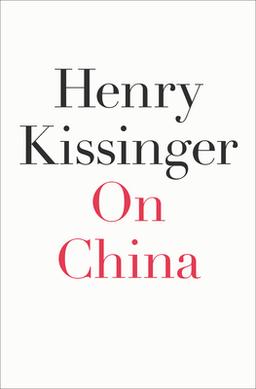
On China is a 2011 non-fiction book by Henry Kissinger, former National Security Adviser and United States Secretary of State. The book is part an effort to make sense of China's strategy in diplomacy and foreign policy over 3000 years and part an attempt to provide an authentic insight on Chinese Communist Party leaders. Kissinger, considered one of the most famous diplomats of the 20th century, played an integral role in developing the relationship between the United States and the People's Republic of China during the Nixon administration, which culminated in Nixon's 1972 visit to China.

Zhang Shenfu, born Zhang Songnian (张崧年), courtesy name Shenfu (申甫), was a founder of the Chinese Communist Party, a philosopher, and a political activist. Zhang was born on June 15, 1893, in Xiaoduo village, Zhili. His father, Zhang Liangong, was a senior official. In 1912, Zhang enrolled at Middle School Affiliated to Senior Normal School (高等师范学堂附属中学班) in Beiping. He later enrolled at Peking University to study philosophy and math in 1914. After graduating, Zhang started to lecture at Peking University, as well as assisting the work of university librarian Li Dazhao. When the Chinese Communist Party was founded by Chen Duxiu and Li Dazhao in the French concession of Shanghai in 1921 as a study society and informal network, Zhang organized the counterpart group in France and then introduced his fiancée Liu Qingyang and friend Zhou Enlai to CCP. In 1925, due to disagreements with other representatives at the fourth congress, Zhang quit the party. After CCP won the Chinese Civil War, Zhang was employed as a researcher at the National Library with Zhou Enlai's permission. Due to his political stance, Zhang was labeled as right-wing in 1957 during the Anti-Rightist Campaign. After Mao's death and the 3rd Plenary Session of the 11th Central Committee, he was rehabilitated. He died in 1986 at 93 years old.
Wang Bingnan (1908–1988) was a diplomat and foreign affairs official of the Chinese Communist Party and the People's Republic of China.
The Vietnam War was a major event that shaped the course of the world in the second half of the 20th century. Although it was a regional conflict that occurred on the Indochinese Peninsula, it also affected the strategic interests of the People's Republic of China, the United States and the Soviet Union as well as the relations between these great powers. China, in particular, also played an important role in the Vietnam wars starting from the First Indochina War. China militarily supported North Vietnam by fighting South Vietnam and the United States in the Vietnam War, as well as providing extensive logistical, training, and material aid.

















